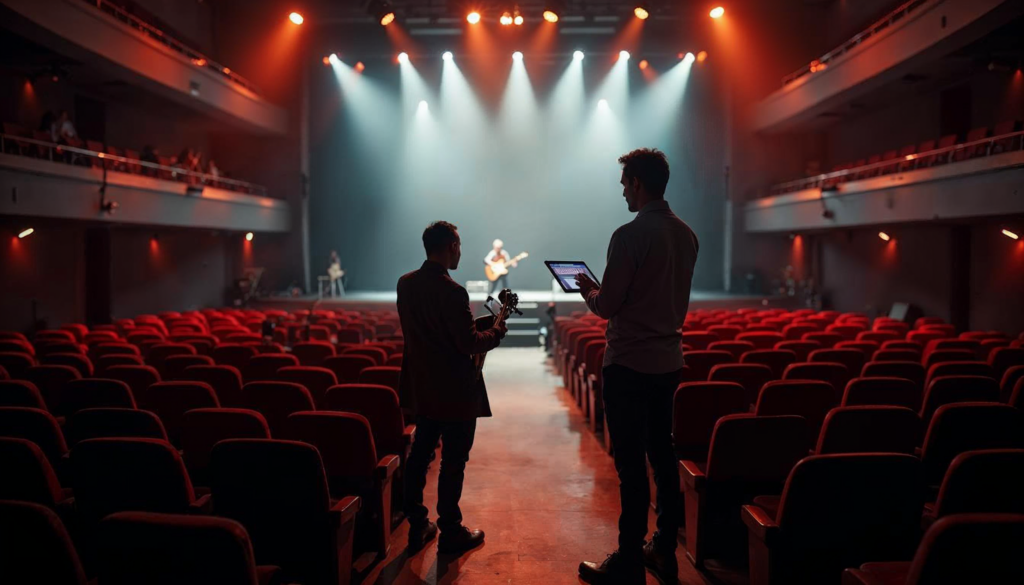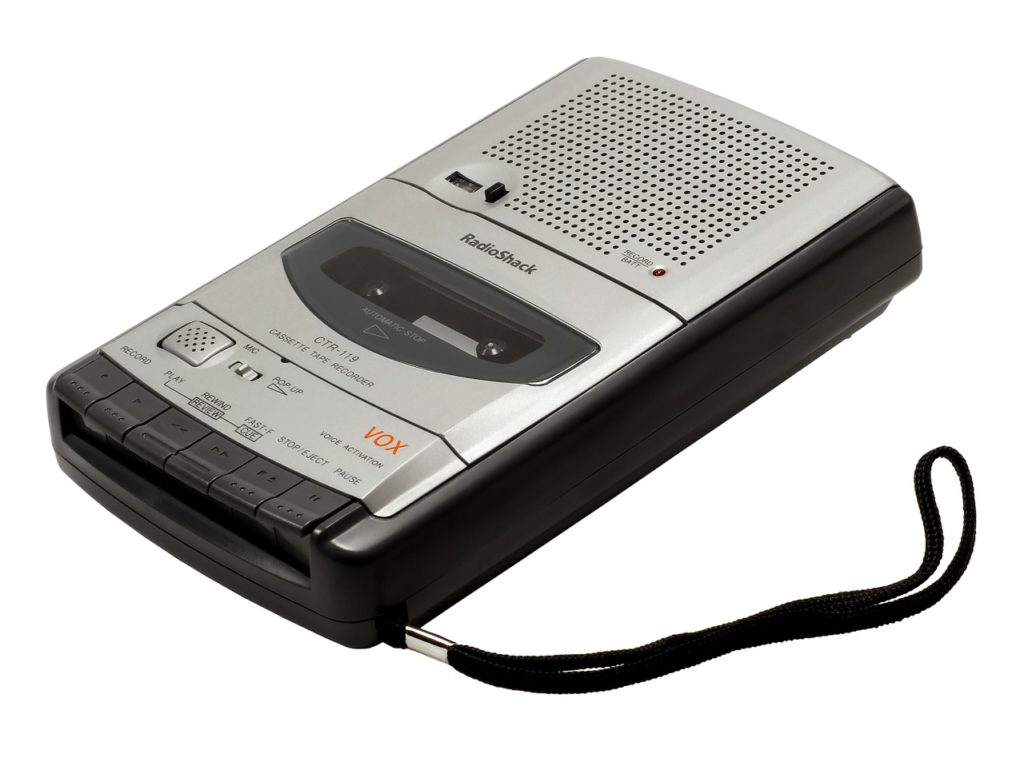
Concert Cost Breakdown: Where Does the Money Go?
The Impact of Higher Ticket Prices in Concert Cost Breakdown
Just to get an initial idea of concert cost breakdown, let’s consider data from Statista, which found the average ticket price to see an artist live in a concert in 2019 reached an average of $96.17. A gig ticket price has, therefore, risen considerably since 2015 when it cost just over $78.
People are fairly used to paying these prices to see some of their favorite big acts, and most don’t even question them anymore. But if you were a promoter or even a concert-goer back in the 90s, you may be wondering what happened to the $30 to $40 tickets to see bands as big as Sting and U2.
Similarly, back in 2018, the BBC found ticket prices rose by 27% since the late nineties, taking inflation into account. These rising ticket prices are all set by promoters and outpace inflation. So what’s going on with the concert cost breakdown?

Concerts Have Evolved
First of all, today’s concerts are remarkably more complex and interactive than they used to be. It’s not just a music presentation anymore. It’s a complete performance. As ticket prices increase, consumers expect one heck of a show, too, only reinforcing the price climb.
The other issue is the impact music streaming and downloading had on the revenue artists take home. The Entertainment Retailers Association reported that while digital music brings in less revenue than record purchases, its production accounts for 62% of the artists’ expenditures. This money has to come from somewhere, and concert tours pay the bills. This is why we see so many bands continuing to tour decades past their glory days.
While these stats measure the most significant global acts, what are ticket prices averaging for the smaller gigs? The Music Venue says the ticket price for smaller band concerts, those who pop up in our neighborhood nightclubs, for instance, has barely changed.
These shows don’t have the same production level as a major tour, take place in smaller venues, and the artists aren’t charging hundreds of thousands of dollars or more. What’s more, live music lovers are still packing these venues, likely because they know they can enjoy a great show at half or a third of the price of the big concerts.
Related: Choosing The Best Event Management App
What Is the Concert Cost Breakdown?
No matter the size of the concert, the money from ticket sales all goes to generally the same places. Independent concert promoters set the ticket prices based on several factors. After they estimate their costs, including the revenue they’d like to bring home, they put their budget. Can you relate?
Calculating costs must also be carefully weighed with expected ticket sales. These numbers aren’t easy or perfect. Of course, more seasoned concert promoters have history on their side. They know where costs can sneak in, where they can save marketing dollars, and how to negotiate deals with long-term partners.
So, when you take a broad look at the concert cost breakdown and keep in mind the driving factors mentioned above, it’s not difficult to see why ticket prices have soared. Below are the big buckets of expenditures you must consider in your calculations.
Artist
Artists often get the bulk of the ticket sales. There’s more than meets the eye, however. The talent is most likely more than one person. A larger band must split those proceeds. There are also their crew members who need to get paid. Then there’s the hotel, transportation, gas, and the artists’ personal needs included in this cost. These prices will fluctuate significantly amongst bands. For instance, a local band or band performing only for one night won’t require hotel accommodations for themselves and their staff.
The size and popularity of the band will also determine their asking price. A larger band recognizes their income will need to be divided, so they often ask for more than a solo act. A band in high demand can also ask for more than an undiscovered band with a smaller following.
Lastly, you may decide to hire an opening act before the headliner act. This will also increase costs as well but can also draw in a bigger audience for increased ticket sales.
Venue
The venue is another big expenditure for you to consider. Large arenas can cost over $50,000, while local music venues can cost just a few thousand dollars.
The larger venues can be more challenging to book for an independent concert promoter, as many larger promotion companies snatch these venues up for the more extensive tours. Still, they can have them if the promoter knows the right people. While the big arenas are costlier, they also hold more people, equalling more ticket sales.
Smaller venues are less expensive than arenas and theaters, but they aren’t always available, either. As consolidations continue to squeeze independent promoters, competition for venues is heating up, raising prices to book them.
Venue costs go beyond the structure of the building. You may have to source lights, sound, staging, and a production team if the venue doesn’t provide it all. Don’t forget parking attendants, security detail, and a clean-up crew. If all of these have to be brought in and aren’t part of the venue package, costs can quickly escalate.
Related: What to Look for In Music Promoter Tools
Marketing and Advertising
Marketing and advertising are often an overlooked expenditure because so much of it is up to you as a promoter. Some promoters use social media for advertising their events, while others include radio, print, and television in their strategy. The more channels, the higher the cost.
Then there’s the merch. Everyone wants merch, right? The Future of Music Organization reported merchandise accounts for approximately 6% of a rock band’s income. Merch builds a brand and satisfies loyal fans who are proud to brag about their love of music.
You have to determine what your expected return on your marketing efforts will be. The more the event receives a promotion, the more tickets will sell, but that marketing eats up a substantial portion of the budget.
Ticketing
You must also consider the value to access the ticketing price in the concert cost breakdown. Most promoters sell their tickets on their websites that directly link to the ticketing platform in the background, so purchasers don’t have to navigate a different website. Depending on the ticketing platform used, a promoter can pass ticketing fees onto their attendees or absorb the costs, deducting them from their payout.
Some platforms allow promoters to keep their booking fees but charge an initial setup cost and monthly license fee to use their software. Some charge per ticket sold, while others offer a flat monthly rate.
Fortunately, there are plenty of ticketing platforms out there, each with its pros and cons, but highly accessible for independent promoters. You can quickly evaluate different ticketing platforms by searching updated reviews, features, and fees, keeping one principle in mind: the easier you make purchasing your event tickets, the more likely you will sell more tickets.
Additional Investments
One of the best investments you can budget for is process management software built for live music promoters. Managing artists, venues, marketing, and concert cost breakdowns can drain an enormous amount of your energy and time. Spending some on a simplified but comprehensive platform could save your day.
Choose a Software to Help You with It All
A leading live music management software can help you automate the concert cost breakdown tasks you do every day and integrate your systems to perform those tasks into a consolidated platform. It can keep track of all of the details so you can spend more time doing what you love.
Instead of wasting time on data entry, spreadsheet management, phone calls, emails, and texts to manage rider requests, deposit tracking, and budgeting, you can book more shows.
The software can integrate with the ticketing platform, for instance, to update financials in real-time. You have instant access to exactly how well tickets are selling to make more informed decisions sooner. You can forget about manual reports, phone calls to the ticketing company, and waiting until the day of the show to know the break-even.
Go for technology that brings all the budgeting tasks together under one solution and automates it, like Prism. It’s impossible to get work done effectively and reliably if you have disorganization and manual processes, such as updating spreadsheets and switching from app to app. Integrating your efforts into Prism will save you money while increasing productivity, efficiency, and organization. Get started now.

Matt Ford is the founder and CEO of Prism.fm, an Austin-based software company revolutionizing live music event management. With a background in entrepreneurship and a degree from the University of Wisconsin-Madison School of Business, Ford combined his self-taught coding skills with firsthand experience as a concert promoter to address the inefficiencies he observed in the industry. In 2018, he launched Prism.fm, an all-in-one platform designed to streamline operations for venues, promoters, and agencies by replacing cumbersome spreadsheets with integrated tools for booking, financial tracking, and contract management. Under his leadership, Prism.fm has grown significantly, achieving $3 million in annual recurring revenue post-COVID and securing over $15 million in funding . Ford’s commitment to building user-centric solutions has positioned Prism.fm as a trusted partner for over 1,500 venues and promoters worldwide.



